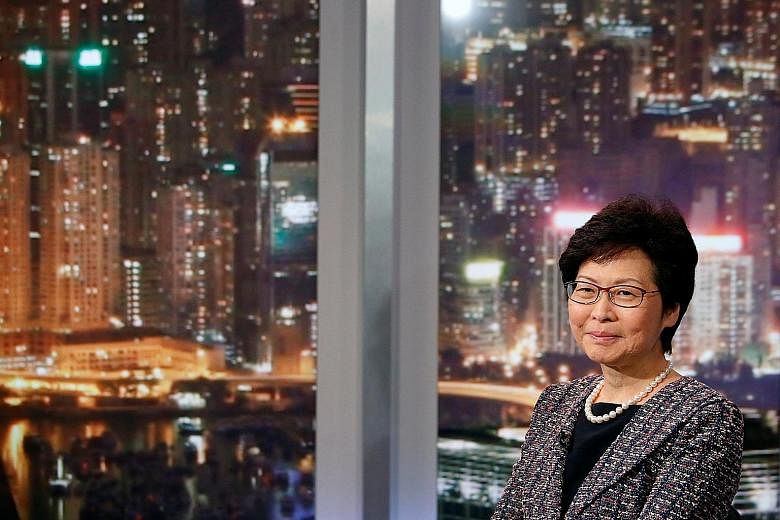Hong Kong hopes to play a more active role in the Asian Infrastructure Investment Bank (AIIB), said the city's Chief Executive Carrie Lam.
"We hope the AIIB will use Hong Kong more" in the projects that it planned to invest in, including in areas such as risk assessment, she said yesterday evening.
Mrs Lam was speaking to reporters on her first full day of meetings in Beijing as part of her first official visit to the capital after her inauguration on July 1.
Hong Kong joined the Beijing-led AIIB in June this year.
It also hopes to play a role in the Belt and Road Initiative (BRI), a Chinese development strategy to build infrastructure along sea and land trading routes that link China to Europe and Africa.
Mrs Lam said she also met Mr Wang Guangya, director of the Hong Kong and Macau Affairs Office, for nearly two hours.
They spoke on a broad range of issues, including measures to facilitate Hong Kongers studying, living and working on the mainland, an issue raised by President Xi Jinping during his visit to Hong Kong last month, she added.
Mrs Lam, who also met Education Minister Chen Baosheng, noted that more and more Hong Kong students were making their way to the mainland to study at its universities.
She was asked by reporters about the controversial co-location of the immigration checkpoint for the high-speed rail between the Chinese mainland and Hong Kong, at the city's West Kowloon terminal.
Some Hong Kongers, particularly the pan-democrats, are opposed to it because they feel it erodes their city's autonomy by having the Chinese checkpoint on Hong Kong soil.
Mrs Lam said she believed her government could gain the support of the majority of the Legislative Council members in enacting the necessary laws for the joint checkpoint.
She added that surveys showed the majority of the Hong Kong people were in support of it.
The Hong Kong leader came to Beijing after making her first overseas trip earlier this month to Singapore, where she was also dogged by the immigration checkpoint issue.
Mrs Lam told the media in Hong Kong on Sunday before leaving for Beijing that the main purpose of her current trip was to discuss concrete measures to enhance the city's role in the BRI.
She would also be discussing plans to promote the development of the Guangdong-Hong Kong-Macau Greater Bay Area, an economic development triangle, and policies to help Hong Kongers work, study and live on the mainland.
Mrs Lam took office at a time when Hong Kong's relations with the central government are fraught.
Hong Kongers fear the erosion of their city's autonomy by the central government, while Beijing is wary of their demand for greater democratic freedoms and the city's nascent separatist movement.
Mr Xi, in his speeches in Hong Kong, showed Beijing's willingness to help resolve the city's economic problems, including the lack of social mobility for its young people.

